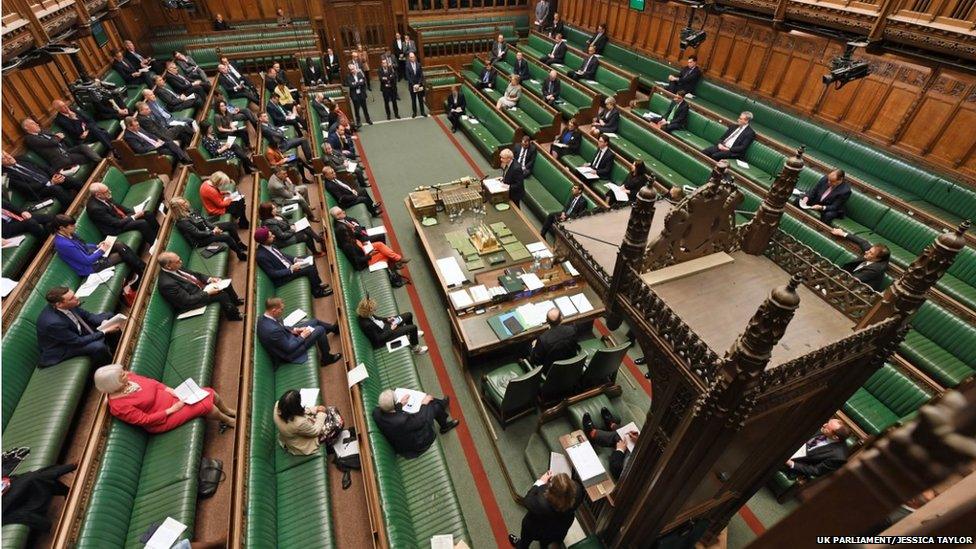Coronavirus: UK Parliament still set to return on 21 April
- Published
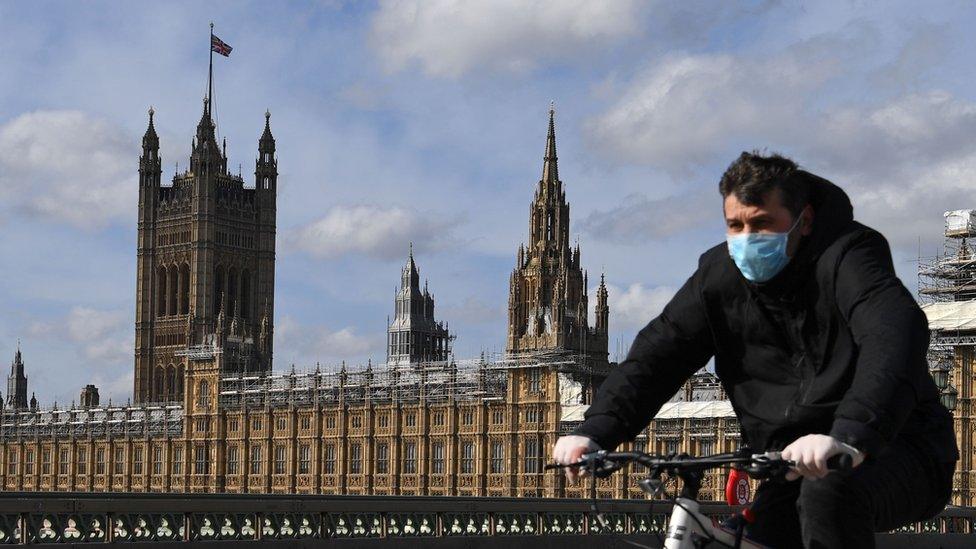
Parliament is still on course to return on 21 April to debate coronavirus measures and authorise spending on the UK's pandemic response.
It will not be business as usual for MPs, with social distancing measures still likely to be in place.
The government needs to pass its Finance Bill, enacting measures in the Budget, which is due to get its second reading on 22 April.
Efforts are under way to allow MPs to work remotely.
The hospital death toll has climbed to 10,612 since Parliament shut down for an extended Easter recess on 25 March.
Commons leader Jacob Rees-Mogg said that when MPs return, Parliament will fulfil its "essential constitutional functions of conducting scrutiny, authorising spending and making laws".
'Virtual Parliament'
At the moment, MPs are due to debate a key piece of Brexit legislation, repealing EU free movement in UK law, on 21 April.
This will be followed by a normal programme of debates and votes, external on government legislation.
It is not known at this stage whether non-essential business will be put on hold - or to what extent MPs will have to change their normal working practices.
At the moment, 40 MPs must be present in the Commons chamber for a vote to take place, but this could be reduced so that party whips could effectively act as proxies for all their MPs, meaning fewer would have to attend votes, according to the Institute for Government, external.
Such a move would need a change to the standing orders, with the government bringing forward a motion which MPs would then agree to.
Other changes to the way MPs work - and postponing non-essential business - could be agreed informally between Commons Speaker Sir Lindsay Hoyle and party leaders.
Labour's Lisa Nandy says the government needs set out "very clear plans" to end the coronavirus lockdown
Sir Lindsay is keen to establish a "virtual Parliament" after successful experiments with video conferencing at select committees.
Jacob Rees-Mogg has said plans for remote-working are being made.
'Proper scrutiny'
"In these unprecedented times, technological solutions have already been implemented for select committee and options are being prepared for the Speaker, the government and other parties to consider next week," said a spokeswoman for Mr Rees-Mogg.
"It is important that we have a comprehensive solution that does not inadvertently exclude any members."
It comes after Labour leader Sir Keir Starmer said MPs must be able to hold the government's decisions to account.
Sir Keir said many areas had seen a "gap" between the announcement of policies and their implementation.
Mr Rees-Mogg will respond to a letter from Sir Keir in which he said Parliament must return so that it could "subject government decisions and ministers to proper scrutiny".

A SIMPLE GUIDE: How do I protect myself?
HOPE AND LOSS: Your coronavirus stories
LOOK-UP TOOL: Check cases in your area
VIDEO: The 20-second hand wash

Sir Keir said Labour would support the government "where it is right to do so", but would also ask "difficult and searching questions... where that is necessary".
The principles of the government's lockdown exit strategy, the availability of coronavirus testing and personal protective equipment (PPE), and support for social care services, employees and businesses are among the issues he said must be discussed.
"We support the announcements of the government on many of these issues, but it is clear from MPs in many constituencies that there is a gap between the announcements and implementation," he said.
Speaking on BBC One's Andrew Marr programme, shadow foreign secretary Lisa Nandy said there were shortfalls in the government's support provisions, including for small businesses, and that Parliament's return would ensure that "gaps and problems" were resolved. "We plan to be constructive, we want to help the government get this right," she said.
MPs are still able to respond to and help their constituents while the House of Commons is on recess.
- Published2 April 2020
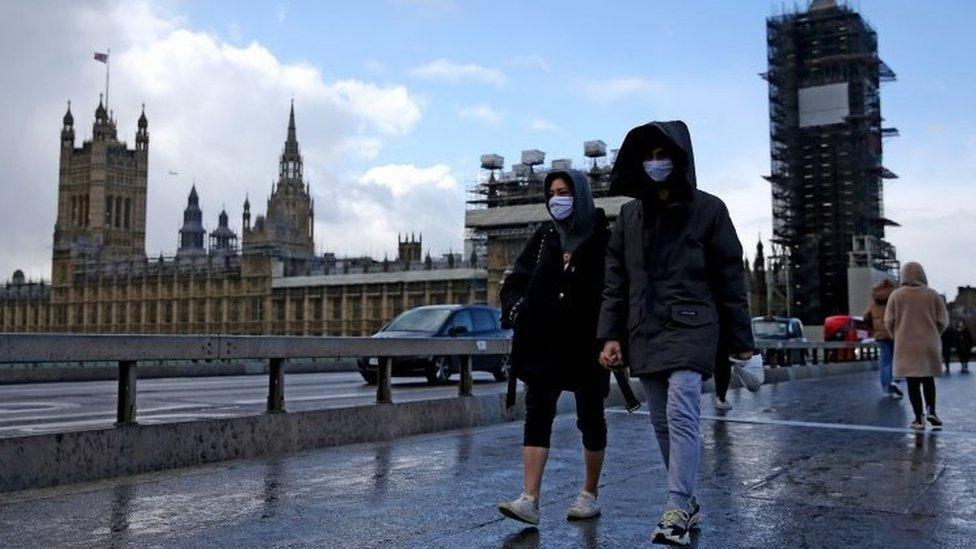
- Published30 March 2020
- Published2 April 2020
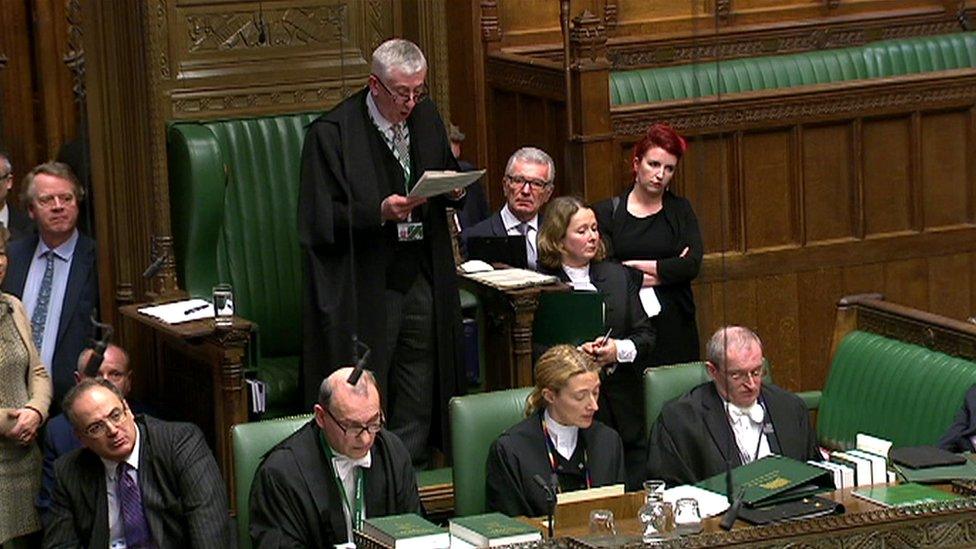
- Published31 March 2020
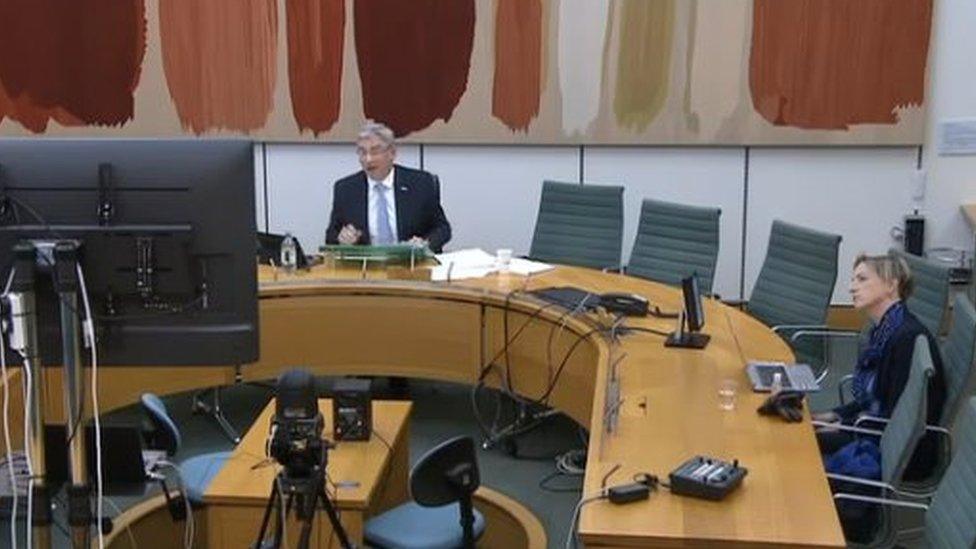
- Published26 March 2020
